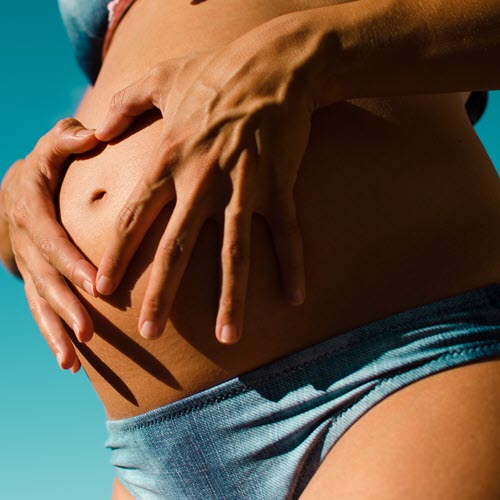Are you trying to get pregnant or thinking about it? Your fertility could be affected by how much you exercise or don’t exercise. Most people are not aware that infertility could be impacted by exercise, but exercising too much might delay or even stop you from getting pregnant.
It has been proven that obesity could have a negative impact on your health for males and females. Are you aware the too much exercise along with low body weight (BMI) could also negatively impact fertility?
What is BMI?
The measure of the body fat, according to the weight and height of an adult, is the body mass index (BMI) and the measurement is irrespective of the sex, race, frame size or age.
What is the importance of BMI ?
You natural fertility could be affected if your BMI is under 18.5 (too thin) or over 25 (overweight). Research has also shown that obese women could have an increase in complications throughout their pregnancy and it could even affect the health of the baby. Talk to your General Practitioner if you have any concerns regarding your weight.
Calculate your pre-pregnancy BMI with this online tool. You will get a better idea of the weight you need to gain or lose.
WHAT IS MY BMI – BODY WEIGHT
Under 18.5 = Underweight
From 18.5-24.9 = Normal weight
From 25-29.9 = Overweight
BMI of 30 or over = Obese
Overweight Research
Researchers in Denmark studied over 5,000 men and discovered there is a lower sperm count in obese men when compared to men with normal weight. (see 1) The same study showed that the rate of IVF success was reduced for women who had a BMI of over 35 (13%) compared to women who have a healthy weight (19%). Overweight women were also less likely to get pregnant after two attempts at in-vitro fertilisation, with 22% getting pregnant compared to over 20% for women who fall into the normal to underweight weight range.
Excess body fat impacts fertility through various hormonal and metabolic changes.
In overweight women, excess oestrogen produced by fat cells can disrupt normal menstrual cycles and ovulation. Overweight men tend to have lower testosterone levels, which reduces sperm count and motility.
Obesity also increases insulin resistance and inflammation, which impairs egg quality and development. It makes the uterine lining less receptive for embryo implantation.
Carrying extra weight makes ovulation induction drugs less effective. Overweight women require higher doses to stimulate ovulation, with lower success rates.
During IVF treatment, obese women produce fewer mature eggs and embryos compared to normal weight women. The embryos often fail to implant or miscarry more frequently.
Obesity also raises the risk of pregnancy complications like gestational diabetes and preeclampsia. Babies have higher rates of birth defects and perinatal mortality.
Losing just 5-10% of body weight through diet and exercise can help restore ovulation and fertility in overweight women. Even a small amount of weight loss improves hormone levels and reverses insulin resistance.
A large study from China also suggests that control of a couples’ pre-pregnancy BMI might improve their fertility (see 2). Over two million couples were studied for the research, The results from the research indicated that, when compared with couples where both partners had a normal BMI, pregnancy rates were lowered by 10% and 19% in those where both partners were either underweight or obese.
Does being underweight have a negative impact on fertility?
Professor Rose Frish, a researcher at Harvard, carried out a number of studies that showed that there could be a negative impact on female fertility resulting from undernutrition and intense physical exercise (see 3). Women have shown to have their reproductive ability disrupted or impaired due to low body fat, over dieting and/or physical activities that are too intense. For those women who are too lean, their ovulation and menstrual periods could be restarted by adding 2-5 kg.
Pregnancy Tips to Help You Conceive
A healthy pregnancy is planned before you even conceive. When you are trying for a baby, our tips on getting pregnant can help your body get ready for the beginning of the process of conception.
1. Jensen, T. Fertility and Sterility, October 2004; vol 82: pp 863-870. Ryley, S. “Influence of body mass index (BMI) on the outcome of 6,827 IVF cycles,” presented at the annual meeting of the American Society for Reproductive Medicine, Philadelphia, Oct. 16-20, 2004.
2. Zhang Y, Zhang J, Zhao J, et al. Couples’ pre- pregnancy body mass index and time to pregnancy among those attempting to conceive their first pregnancy. Fertil Steril 2020.
3. Rose E. Frisch Associate Professor of Population Sciences, Emerita Member, Harvard Center for Population and Development Studies Department of Population and International Health
Photo by Ignacio Campo on Unsplash
This post first appeared in May 2019 and has been updated since.
Zoom Baby is a leading supplier of Pregnancy Tests and Ovulation Test Kits





